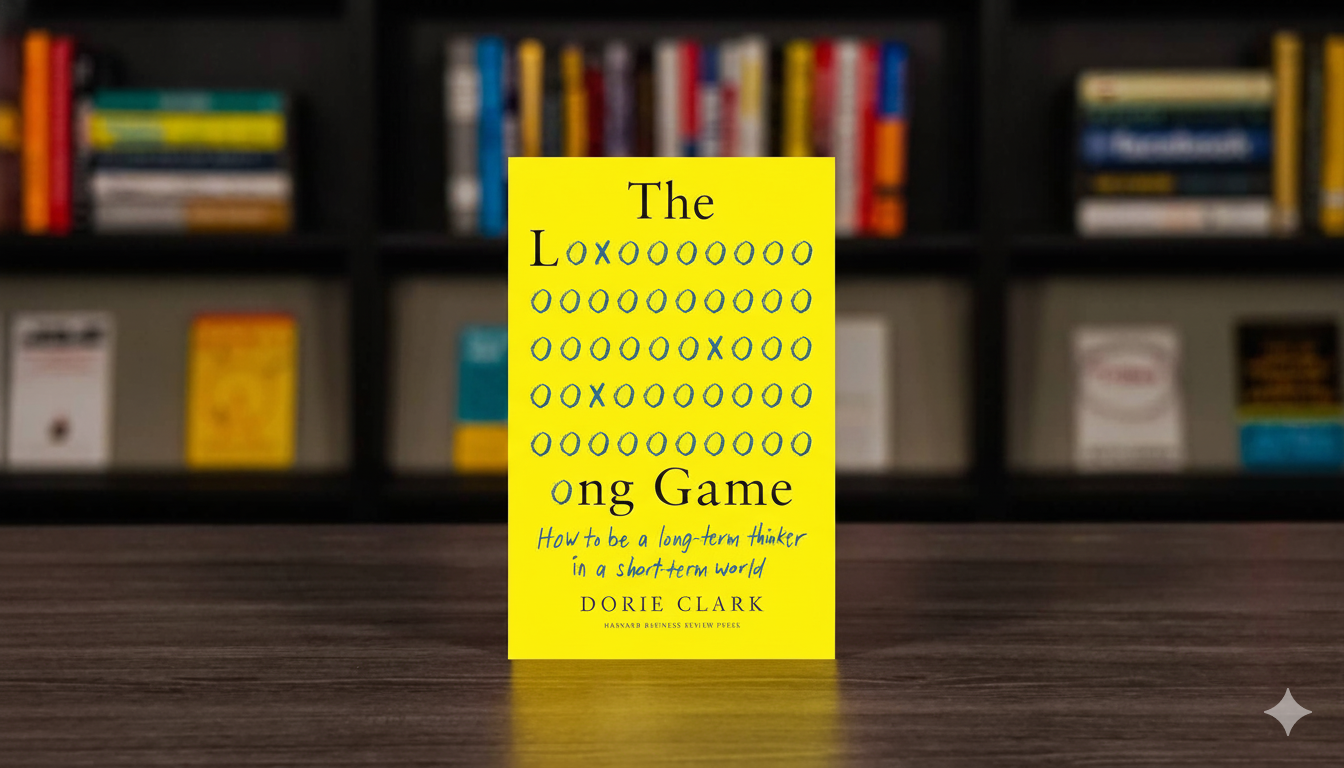In an age of instant likes, immediate results, and constant notifications, it's easy to get caught in the trap of short-term thinking. We chase quick wins, react to every incoming email, and often lose sight of our bigger aspirations. But what if the path to true success, impact, and fulfillment lies in consciously stepping back and embracing a different approach?
That's the powerful invitation from Dorie Clark's insightful book, The Long Game: How to Be a Long-Term Thinker in a Short-Term World. Clark, a celebrated thought leader and author, argues that while the world around us clamors for immediacy, strategic long-term thinking is the critical differentiator for building a truly meaningful and impactful career and life.
The Problem with Short-Term Thinking
Our brains are wired for immediate rewards. The digital world only amplifies this, training us to expect instant feedback and results. This creates several pitfalls:
- Distraction and Overwhelm: We get caught up in urgent tasks, neglecting what's truly important for our future.
- Burnout: Constantly chasing immediate goals without a larger strategy leads to exhaustion and a lack of direction.
- Lack of Impact: Without sustained effort on a focused path, our contributions can feel scattered and less significant.
- Missed Opportunities: We fail to lay the groundwork for big opportunities that only emerge after years of consistent effort.
Clark emphasizes that "our default mode is short-term thinking, but our optimal mode is long-term thinking." The challenge, then, is to consciously override that default.
What is "The Long Game"?
Playing the long game means making strategic choices today that might not yield immediate gratification but will create significant returns over months, years, or even decades. It requires:
- Patience: Understanding that meaningful results often take time to materialize.
- Strategic Planning: Having a clear vision for where you want to go and deliberately mapping out the steps to get there.
- Ruthless Prioritization: Saying "no" to good opportunities that don't align with your long-term goals, to create space for the truly great ones.
- Tolerance for Uncertainty: Accepting that the path won't always be linear and being prepared to adapt.
- Investing in Relationships: Cultivating genuine connections that offer support, collaboration, and unforeseen opportunities down the line.
Clark stresses that "the ultimate success of The Long Game is not about accumulating more — it’s about becoming who you want to be and creating the impact you want to have."
How to Cultivate Long-Term Thinking
The Long Game offers practical strategies to shift your mindset and actions:
- Create White Space: Deliberately carve out time for thinking, planning, and strategic work, away from daily demands. This "thinking time" is non-negotiable.
- Identify Your North Star: What are your core values? What kind of impact do you want to make? What does true success look like for you in 5, 10, or 20 years?
- Say No to Good (for Great): Learn to decline opportunities that distract from your most important long-term goals, even if they seem appealing in the short term.
- Embrace Incremental Progress: Understand that big goals are achieved through small, consistent steps. Celebrate the micro-wins, knowing they contribute to the macro vision.
- Build Your Portfolio of Assets: Whether it's developing expertise, building a network, or creating content, consistently invest in assets that will pay dividends over time.
In a world designed to pull us in a thousand directions, The Long Game is a critical guide for anyone seeking to build a career and life of true purpose and lasting impact. It's a call to reclaim our agency, step off the hamster wheel of immediacy, and consciously invest in the future we truly desire.
